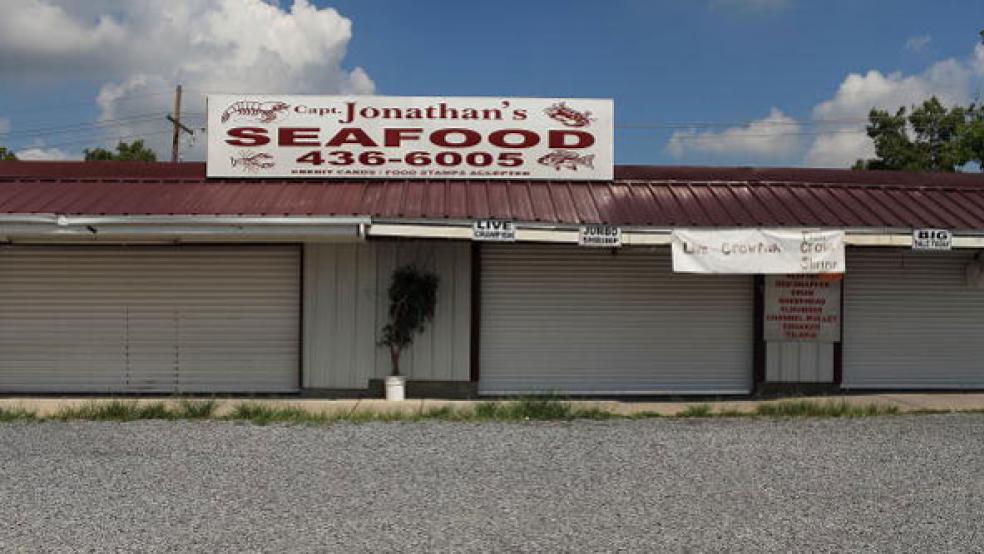In the tourism world, where there’s a crowd, there’s cash. But neither is pouring into the Gulf of Mexico right now, unlike the black oil that’s been fouling the water by more than a million gallons a day since April 20. Yesterday, the area took another hit when the containment cap that had reduced the volume had to be removed temporarily.
In the worst hit areas of the Gulf, hotels and restaurants—which normally draw large volumes of summer vacationers—aren’t fully occupied. And chances are those that are there are journalists covering the story.
According to the U.S. Travel Association, travel is responsible for $94 billion annually of economic impact in the affected Gulf states (Louisiana, Mississippi, Alabama and Florida). It supports the jobs of more than a million Americans. CBS News reported that a mere 10 percent decline in tourism-related business in Florida's 23 Gulf Shore counties could cost the Sunshine State $2.2 billion in revenue.
“Our beachfront properties have lost a considerable amount of business,” says Richard Forester, executive director of the Mississippi Gulf Coast Convention and Visitors Bureau. “Our charter boat industry is in really bad shape. Our recreational fishing industry is hurting. The phones aren’t ringing. It’s very difficult to deal with."
On Wednesday, The Fiscal Times reached out to more than 30 tourist and leisure businesses, venues, individuals and industry insiders across a huge swath of the Gulf Coast to take the latest economic pulse of the region. Some of our alarming findings:
- Average daily rates for hotel-room bookings after May 15 are down by about 12 percent in Mobile, Alabama; 15 percent in Fort Walton Beach, Florida, 20 percent in Panama City, Florida, and 28 percent in Pensacola, Florida. Says Genevieve Shaw Brown, senior editor at Travelocity, “When you compare the instance of cancellations this year to the same destinations last year, we’re experiencing markedly more this year.”
- “Most of our cancellations are related to the oil spill—90 percent, in fact,” says Jim Desai, manager of Beachside Resort Hotel in Gulf Shores, Alabama. “Guests are saying the beach is getting worse, the oil is on the land, and the water is getting browner and browner.”
- “Our volume is down significantly,” says Linda Hornsby, executive director of the Mississippi Hotel and Lodging Association, which has 160 member hotels. “For July and August, it’s down nearly 70 percent. We experienced at least a 50 percent cancellation rate right after the spill. Now, more than two months later, there’s nothing left to cancel. New bookings are down drastically. Some properties that were already on a shoestring will probably fold. The charter boat business is down between 70 and 90 percent, and restaurants about 60 percent.”
- “Overall on the coast, seafood restaurants are down 30 percent,” says Scott Weinberg, owner of Blow Fly Inn in Gulfport, Mississippi. “This is scarier than Katrina. Katrina, you could rebuild from—and I did, and it took me two years. This could destroy our whole ecosystem.”
- “We haven’t made a whole lot of reservations for the summer, as far as leisure guests,” stays Fran Koetterer, sales manager at the Quality Inn in Biloxi, Missouri. “We have some environmental workers and some business guests, but we usually do much better. Usually we’re sold out in the summer, and that’s definitely not the case now. There’s just not a whole lot of traffic, period.”
- In Pensacola, Florida, which usually hosts about 3.5 million tourists each year (half of whom arrive between May and August), “we’re looking at least a 20 percent downtown in revenues because of the oil, in June,” says Ed Schroeder, director of the visitors bureau.
Amid all of this, uncertainty rules the day. In New Orleans, “what’s more difficult to measure is the lost business,” says Kelly Shulz, vice president for communications at the New Orleans Convention and Visitors Bureau. “We’ve had no cancellations, but the phone isn’t ringing, either.”
Upcoming “Oil Summit”
Meanwhile, as fears increased that the flow of oil may make its way up the Atlantic coastline, carried along by the powerful loop current, House Majority Leader Steny Hoyer (D-MD) asked the White House on Wednesday to hold an “oil summit” with East Coast governors and other officials, so that authorities are properly prepared. Hoyer told The Fiscal Times, “While immediate efforts continue to be focused primarily on containing the oil spill and mitigating its impacts on Gulf Coast communities, it is critical that we are also prepared for potential scenarios of impact along the Atlantic Coast.”
Shaun Adamec, the press secretary to Maryland’s Governor Martin O’Malley, also told The Fiscal Times, “The Governor would be eager to participate. He has already convened his cabinet to discuss the response capacity and scenarios. If it were to impact the East Coast it would need to be a joint effort.”
With additional reporting by Michelle Hirsch, Jennifer DePaul, and Justin Vogt.
Tell us your thoughts about this article, in the box below.





